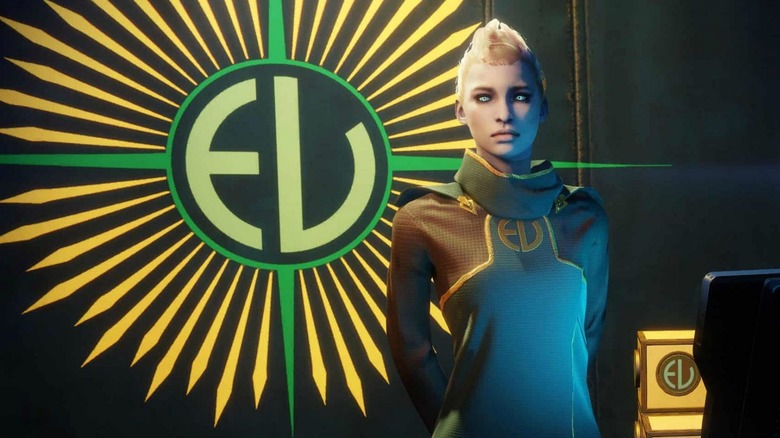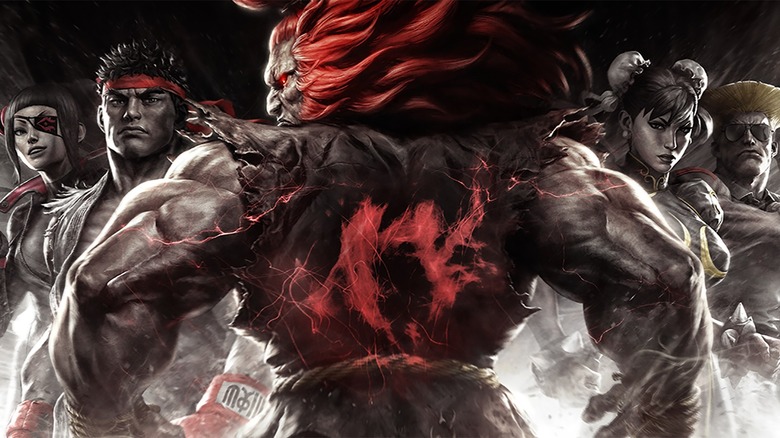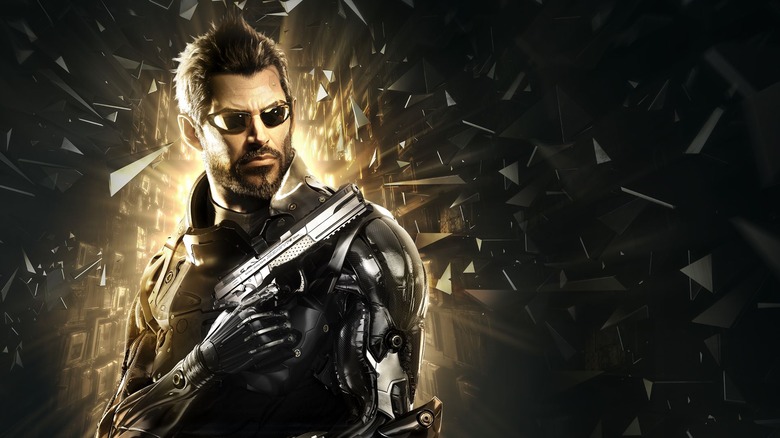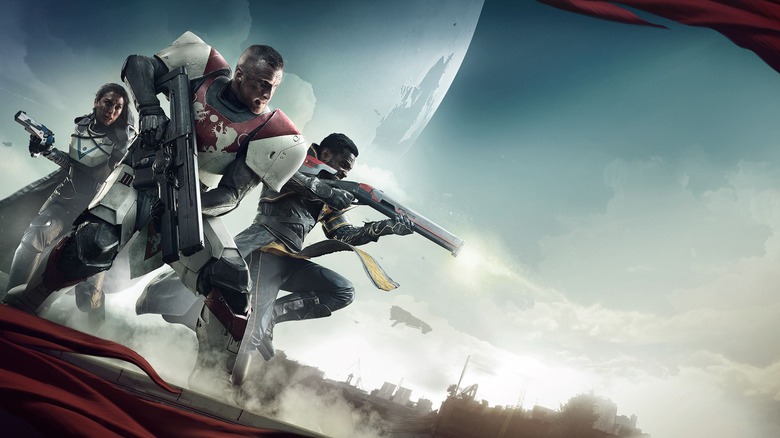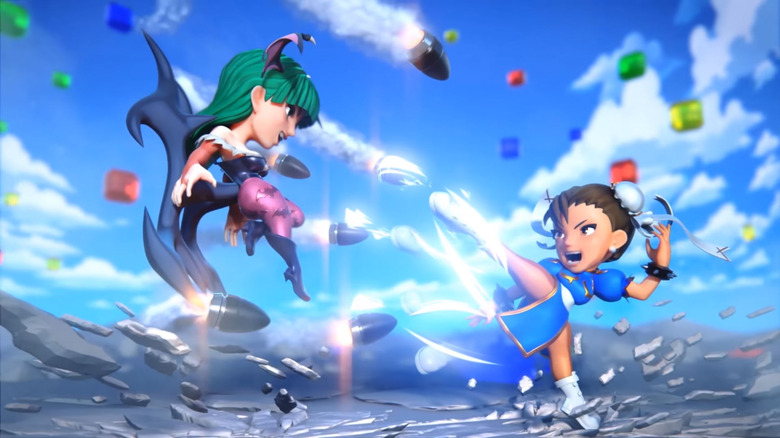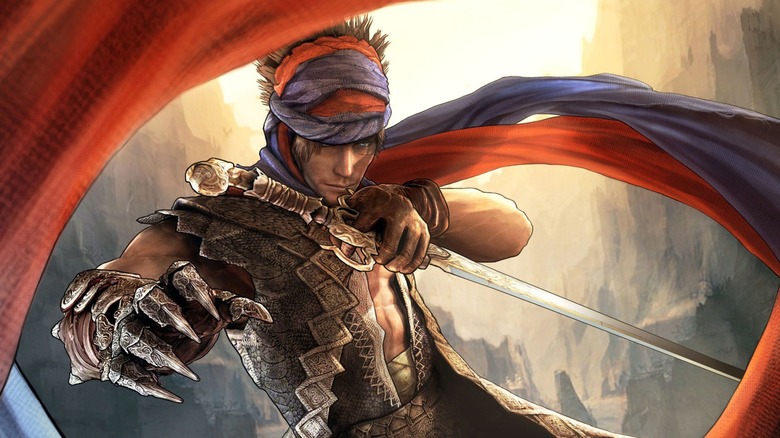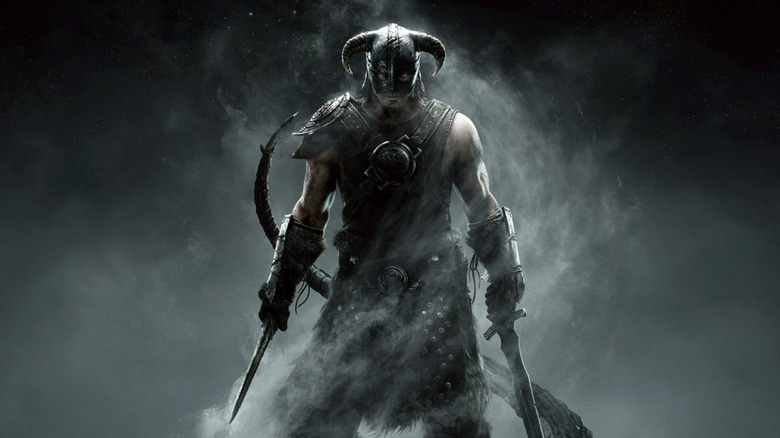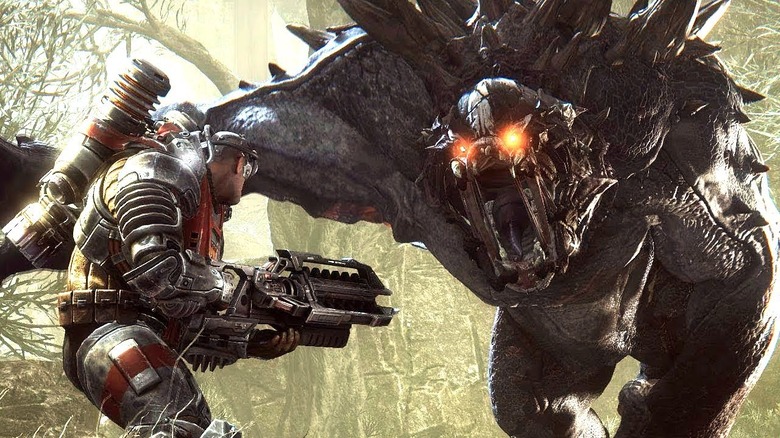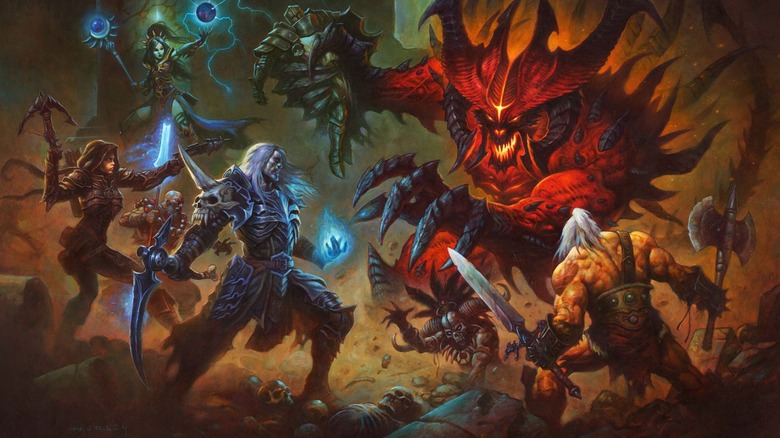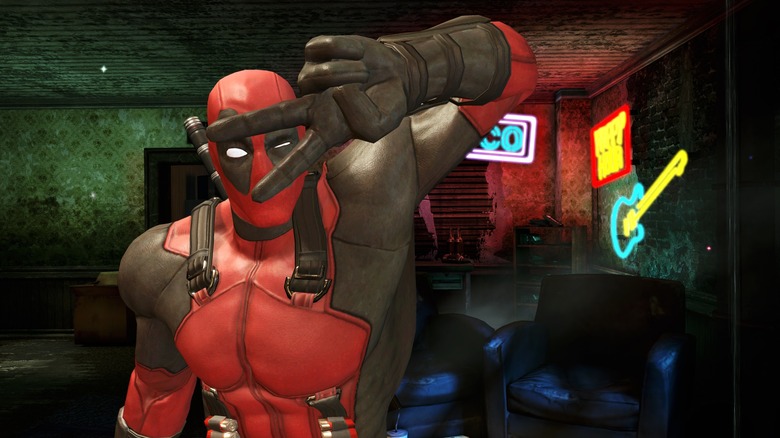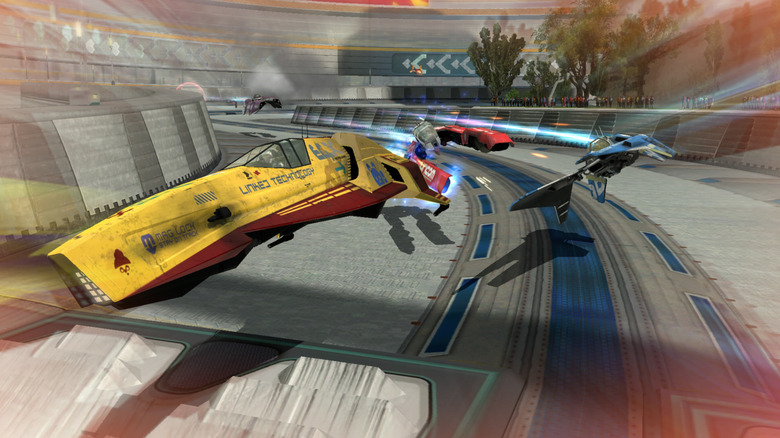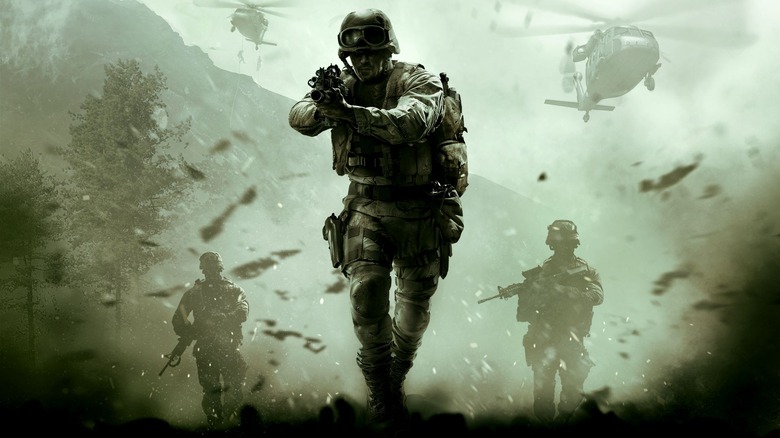Great Games Ruined By Greed
We may receive a commission on purchases made from links.
Once upon a time — and we know this is hard to believe — when you threw down your $50 to buy a brand new video game, everything you wanted or needed for the game was already in the cartridge/disc, and there was no way to get more until they released a sequel or someone modded it. Even then, there had to be enough content in that expansion or sequel to comprise a full game.
Fast forward to the present, and we've all had to get used to spending far more on a single game. And while there are those who offer quite a bit of bang for one's buck — Nintendo, Sony, Capcom games that aren't Street Fighter — there are plenty of examples where you can just see tiny obnoxious dollar signs hanging in front of the publishers' eyes, to the detriment of the entire game. We've collected the worst of the worst below.
Street Fighter 5
Fighting games weren't the first genre to figure out they had desperate fans who could be milked for all they're worth, but they're certainly the games most likely to grab a bucket. None of them have had such potential and pedigree outright ruined by naked avarice than Street Fighter 5, though.
Despite its actual mechanics being stronger than ever, when Street Fighter 5 launched, it wasn't just greedy, but incomplete. There was no regular old "fight eight opponents, a boss, then see an ending" mode, just online multiplayer and a short story vignette match for each character. But of course, the microtransaction store was fully operational at launch, and earning Fight Money to purchase costumes and characters just by playing the game was a chore.
Eventually, we'd get the Arcade Edition update, which finally gave the game an Arcade Mode and a slew of additional nostalgia features, like a single-player that homaged Street Fighter's history. Arcade Edition is the game that should've been released day one, but to its credit, it's a much more complete and satisfying experience now ...
... except for the fact that the game's still stingy about Fight Money, and they introduced a feature where characters displayed ads on their costumes, because we clearly can't have nice Street Fighter things anymore.
Deus Ex: Mankind Divided
Mankind Divided was a game in hot water the second it was officially announced, with a few of the game's not-subtle political allegories hitting too close to very real home, and Eidos doing a spectacular job of not even bothering to adequately address the IRL implications of their terminology.
Still, those are tonal issues with the game itself, and not a thing that outright kills a game's goodwill with its audience. Instead Square Enix did that with their pre-order bonuses. More accurately, pre-order pyramid scheme.
Mankind Divided had a system called "Augment Your Pre-Order," which had a literal pyramid of goodies and bonuses that were available to folks who pre-ordered the game, but more would unlock the more people actually pre-ordered the game. It's perhaps not the worst example of greed, but definitely its most naked in its intent. The backlash was immediate and brutal, leading Square Enix to ditch the program. But haunted by the controversy up through release, compounded later by behind-the-scenes reports that Square shoved microtransactions in at the last minute, destroying the game's balancing, the game never really hit the critical or sales heights of Human Revolution.
Destiny 2
There are certain things you expect from a game that so clearly wants to be Warcraft in space with guns, and for the most part, they all came to pass in Destiny. It's grindy, enemies are bullet sponges, the story is a convoluted mess, and any game with more than two types of currency is already suspect. But, again, such is MMOs, and Destiny plays so damned good that plenty of folks found joy in it regardless. There were microtransactions, but only for cosmetics.
It wasn't until Destiny 2, however, that the Eye of Activision turned fully green. It started basic: shaders used to be unlimited use, though the shader applied to your entire outfit. In D2, shaders could be used separately for each piece of your armor, but were now turned into a rare, consumable resource that could only be reliably purchased using the Eververse store. Annoying, but, tip of the iceberg.
The real terror started when Bungie started quietly tinkering with XP gained from players who were gaining it too fast, making the game's loot boxes harder to get, loot boxes that increasingly included items that told vital pieces of the game's lore. Destiny 2 had a strong start, and its slow descent into players' wallets absolutely sucked the life out of it.
Puzzle Fighter Mobile
Puzzle Fighter isn't the first puzzle game to lean in on a Versus mode as a core mechanic, but it's absolutely the first to do something legitimately brilliant with the idea, slapping a jewel-matching game with the Street Fighter license. So when Capcom announced that they'd be bringing the game to mobile, it felt like a perfect fit, and the greatest threat to productivity since that time Google put a fully playable Pac-Man on their homepage (which, fun fact: you can still play. You're welcome).
The good news? It was a brilliant update of the game that introduced the idea that only breaking specific configurations of gems would produce special moves, so character choice actually mattered way more. It also introduced assist characters who'd add modifiers to each attack.
The bad news? Puzzle Fighter Mobile was everybody's worst nightmare of a free-to-play title. The single-player, such as it is, was three matches against the CPU that'd refresh and change every day, while the meat was in facing opponents online. Neither one gave you enough rewards to even remotely afford new characters or the most devastating moves. But, of course, you could also buy all this stuff for real world money, and never lose a match.
The punchline, however, is that after all that effort, the game actually got shut down after only eight months, meaning all that money spent is lost like tears in the rain. Games as a service, everybody.
Prince of Persia (2008)
The 2008 Prince of Persia reboot is a strange, almost tragic anomaly in Ubisoft's history. It dropped a year after the first Assassin's Creed, a cel-shaded game at the time that gritty warzones were the prevailing aesthetic. It's a very good game that had the misfortune of just not being what folks wanted.
Those aren't idle comparisons, either, since Prince of Persia had the audacity to end on a down note, couched in a scenario where Ellika, the Prince's companion, gives up her life to seal away the villain Ahriman. But the Prince is too selfish to let her go, and so performs a ritual to bring her back and get his "happy" ending, at the expense of letting the world fall to darkness. That's a ballsy, fascinating way to end a game, for sure, and for a brief couple months, the discussions surrounding the Prince's morally grey decision were delightful.
And then, of course, Ubisoft announced that the true ending of the game would be released in a $10 DLC called Epilogue, which is bad form to begin with, but also gave the game a boring, lame, cut-and-dried conclusion. Thanks. We hate it.
The Elder Scrolls 5: Skyrim
Skyrim is an incredible game. The magic that people feel exploring that world and making their own adventures has created unforgettable memories that will define gaming for generations to come.
And the reason you won't forget them is because Bethesda just will. Not. Stop. Porting it.
When Skyrim was first released in 2011, it was on three platforms: Xbox 360, PS3, and PC. Two years later, it got a Legendary Edition with all the DLC. Then three years later, it was remastered on PlayStation 4 and Xbox One as a Special Edition. Then the Switch. Then in VR. Then on Alexa, and no, we're not kidding about that.
Now, Bethesda isn't the first developer to port a single previous-gen game everywhere they can, but other developers usually put out new content for said game in the process, or fix long-standing bugs, or even just put out another entry in the series. Admittedly, Skyrim in VR is nice, but it's also the exact same game, with many of the same stultifying glitches the game has had since 2011. Meanwhile, Bethesda almost — ALMOST — tried to make it so the game's modding community (who have, in fact, fixed many of those glitches) would have to pay to implement any changes.
At this point, players don't talk about the first time Alduin destroys Helden with awe; they talk about when they're gonna port the game to a toaster for $60.
Guitar Hero Live
Back in 2015, the music game genre tried to stage a comeback tour. Harmonix released Rock Band 4, which didn't really reinvent the wheel, but didn't need to. There's still DLC coming out for that game, in fact.
On the other hand, there's Activision, who did, in fact, try to reinvent the wheel with a Guitar Hero that swapped CG caricatures with Sega CD-style FMV cutscenes during gameplay, plus a new six-key configuration guitar that more resembles a real guitar's fretboard. The result was a game that was harder, but in an interesting way.
The problem, however, was that the core tracklist that the FMVs were set to was mostly terrible, including either artists nobody asked for, or head-scratcher deep cuts by rock legends. Thankfully, GHTV existed, which allowed you play to a much more awesome and diverse collection of tracks, set to their original music videos. But there was a hideous catch: the GHTV tracks weren't owned, but rented, using tokens you won during songs or by purchasing them through the in-game store. Guess which option was more generous with the tokens? Even then, songs would continually be swapped out and replaced while the game was active, meaning you might not even be able to play a track you liked a few weeks later. Thankfully, that's less an issue now, since Activision pulled the plug on Guitar Hero Live's online servers at the end of 2018. Problem solved?
Evolve
New IPs are hard to spotlight, especially in AAA gaming, especially if you're not a household name like, say, FromSoftware or Naughty Dog. So original games need all the help they can get in this world.
Turtle Rock did the exact opposite with Evolve.
Evolve is a great idea on paper. It's kinda like a Predator game we never got, where four players have to hunt down a vicious player-controlled monster before it gets them. And before you could even say "that looks cool," 2K was out for blood.
The second the game was announced, 2K announced a pre-order/DLC/season pass plan so needlessly confusing we're pretty sure reading it out loud raises a cursed mummy from the dead. All that content and more wound up in the in-game store eventually, which would just annoy players further since the grind to actually earn new characters and content the normal way was a chore. Evolve was another case where multiple facets were broken, but the microtransaction store worked just fine.
Eventually, the game went free to play, and Turtle Rock did a complete top-to-bottom rebalancing that managed to earn some small praise. But by then, the damage had been done, the players weren't coming back, and Turtle Rock put a bullet in the game's tragically empty servers in September 2018.
Diablo 3
Probably the greatest cautionary tale of how not to do microtransactions in a game, and the one apparently zero publishers actually heeded: Diablo 3 is still one of the greatest games of this generation, but it's not for lack of effort on Blizzard's part to trip it up at the starting gate.
Their intentions were good, at least. Diablo 2 had a huge problem with players selling accounts and rare gear through black market channels. Blizzard, wanting to not just look out for their audience, but also keep close tabs on their content — and, above all, get their cut — decided to launch Diablo 3 with an Auction House, where some of the most powerful gear in game could go to the highest bidder, be that with in-game or real-world money.
Problem is, when most of your game is centered around the gaining and obtaining of loot, giving players a monetary shortcut to said loot defeats the purpose. The fan outrage got loud enough to force Blizzard to nix the feature about a year later.
The result is, well, Diablo 3 is one of Blizzard's most heralded and best-selling titles, still supported with content and a fanbase of ecstatic users who still play to this day.
Deadpool
Perhaps owing to just how long games now take to make compared to films, licensed AAA games based on movies are quickly becoming a thing of the past. So it's no surprise that when an actual live-action Deadpool movie ended up happening in 2016, Activision made the smart move and simply re-released the Deadpool game they did back in 2013. Not a bad idea as far as synergy goes: Deadpool's a solid game, with a killer performance from Nolan North, and aside from a few ugly over-problematic jokes, all they really needed to do was iron out the game's bugs and performance issues.
So of course, that didn't happen.
Unlike the shine jobs they gave Spyro the Dragon and Crash Bandicoot, all Activision ended up doing to Deadpool was boosting the resolution to 1080p. Otherwise, it was literally the same game. To make matters worse, not only was Activision charging a full $60 for a three-year-old game, but a three-year-old game with performance issues and a fun new glitch where the game would stop and stutter every 10-15 seconds to ping Activision's servers for some reason. As it turns out, this wound up being a pattern, since Activision secreted out a lame bundle of the Prototype games that had most of the same problems. Activision lost the license and delisted the game a couple years later. It was for the best.
Wipeout HD
Wipeout is one of the only franchises from PlayStation's early years to actually go the distance and stay popular all these years. Even though the team behind it is no more, the VR update for the Omega Collection is still the game in its ultimate form.
Meanwhile, there was a hot minute where Wipeout HD, included in the Omega Collection, was the series at its worst, and would've spelled disaster if they'd stuck with it.
For whatever awful corporate reasons, Sony thought to themselves, "Hey, that new HD version of Wipeout on the PS3? Great game, but it's missing something, what is it, oh, right, loading screen commercials." And so it was that, without warning, commercials for State Farm Insurance started showing up on the load screens for Wipeout HD. To make matters worse, the commercials weren't just running, but also extending the load times. Asked to explain themselves, one of the developers of the ad software stated that the ads "complement the Wipeout HD world seamlessly," and we'll just let you be the judge of that.
Thankfully, the experiment didn't last long, and Sony was forced to nix the ads only a couple of days after they were announced. But it's not the first time someone tried to slip actual commercials into games, and it's probably not going to be the last.
Call of Duty 4: Modern Warfare Remastered
Listen, it's not like we want to keep beating up on Activision here. We really don't. But they keep giving everyone good reason. And none are more outrageous than what Activision did with the crown jewel of its bread-and-butter franchise.
Remastering Call of Duty 4 should've been the easiest cash grab in the history of cash grabs. It's the most respected game in the entire franchise, and for good reason. But Activision couldn't resist trying to reach deeper into that cookie jar. For starters, at first, the remaster was bundled in the Special Edition of Call of Duty: Infinite Warfare, with no standalone release. Putting aside that Infinite Warfare is a decent game, it's 100% not one that most of the series' fanbase wanted. Its reveal trailer is still one of the most disliked videos on YouTube. What probably sounded in a boardroom like sweetening the pot instantly came across like holding a video game hostage.
Later, the game would get a standalone release, but even that came with a major catch: not only did Activision not do the customary and honorable thing and add the then-ten-years-old game's DLC maps to the game for free but had the audacity to charge $5 more than they originally cost. Again, we really don't like to beat up on Activision, but they've made it very, very, very easy.

